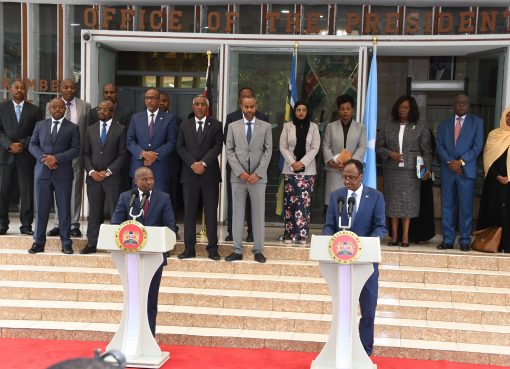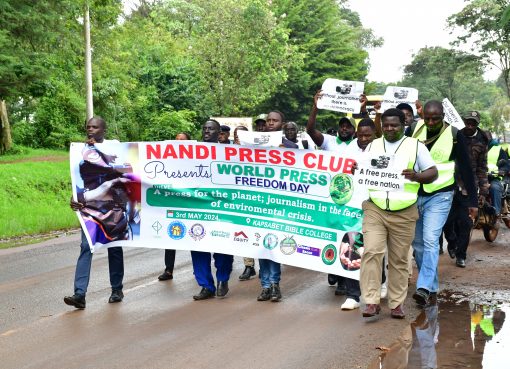Fifty per cent of Kenya’s population is at risk of contracting one or a combination of Neglected Tropical Diseases (NTD’s).
This represents 25 million people, posing a serious public health issue, especially in rural areas.
Health Cabinet Secretary (CS), Dr. Susan Nakhumicha, noted the highest NTD’s disease burden is in rural communities where there is low access to sanitation, clean water and limited access to affordable healthcare.
The NTD’s, among them Buruli Ulcer, Trypanosomiasis (sleeping sickness), Dracunculiasis (Guinea worm disease), Dengue fever, Leprosy (Hansen’s disease), Rabies and snakebite envenoming, she said, have negative effect on health besides contributing to rising levels of poverty with patients subjected to stigma and social exclusion.
“NTD’s are a devastating obstacle to human and socio-economic development of already impoverished communities,” she said.
In a speech read on her behalf by Dr. Wycliffe Omondi head, Division of Vector Borne and Neglected Tropical Diseases during the national celebrations to mark World NTD’s day in Kisumu, the CS said the government was committed to eliminating the diseases.
Over the last 10 years, the National Government, she said, has steered the control and elimination of NTD’s by developing policies and strategic plans, to guide the achievement of both globally and locally set targets.
Kenya, she said, became the first African country to launch a five-year national plan (2011-2015) for the integrated control of NTD’s, National Strategic Plan (2016-2020) and the Breaking Transmission Strategy (2019-2023).
Other policies, she said include the Preventive Chemotherapy NTD’s and Strategic Plan for Control of Leishmaniasis (2021-2025).
The Policy Documents, she added, saw the country declared Guinea Worm free in 2018 adding that various interventions have been rolled out to control the other neglected tropical diseases.
She added that the country was committed to eliminating Trypanosomiasis and River Blindness by the year 2025 and Elephantiasis and Blinding Trachoma by the year 2027.
Dr. Nakhumicha called for increased allocation of resources and political goodwill to win the war against NTD’s and ensure access to essential medicines for those infected.
As a long-term measure, she said the ministry will continue to prioritize Universal Health Coverage (UHC) and access to clean water and sanitation to meet WHO targets of ending NTD’s by the year 2030.
By Rolex Omondi and Fleiss Akoko




